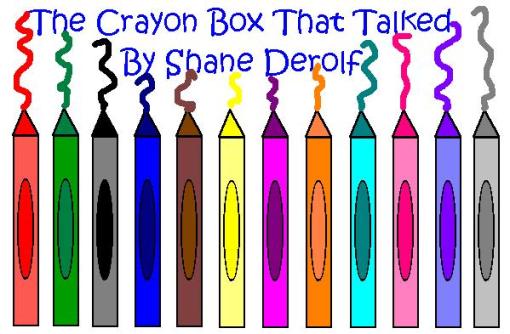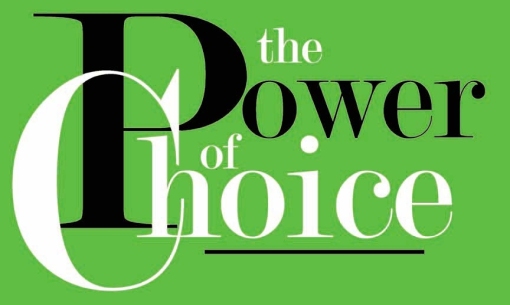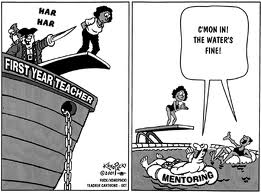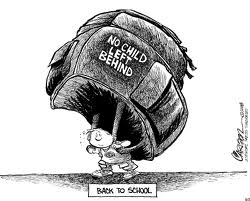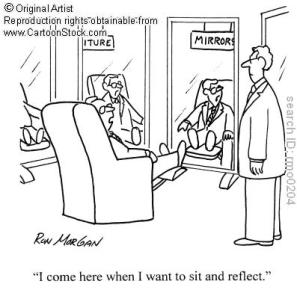Final Reflection
22 06 2012Comments : Leave a Comment »
Categories : ECMP 355, ECMP 355 ~ Final Reflection
A Truly Crazy Week
19 06 2012While reading through #ecmp355 blogs in the past couple of days, I have noticed a trend in posts explaining a lack of blogging, as a result of a busy final week of classes. I am feeling this pressure as well, even though this is the only class that I am currently enrolled in for the Spring 2012 session. This week on top of working fulltime, I have a ball game, a graduation to attend, and a ball tournament. Needless to say, things are busy, and while I have enjoyed the process of learning I have ventured throughout the duration of this class, I am looking forward to wrapping up the course content in my final projects. I am currently finalizing my summary paper, and am well on my way to coming up with something pretty exciting for my final projects, well for me anyways! So even though I have not blogged in the last week I just wanted to write a little bit about the things that I have been thinking about lately.
The first thing I wanted to comment upon was in response to a comment made by Dean Shareski in a live session, unfortunately I am unable to recall exactly which one. Regardless, he said that to be truly successful in ECMP 355, He went on to explain that his hopes were that his students did not hide behind their computers, and do their tech tasks without asking questions, but instead offer insight, digging deep and essentially offer collaboration. When he was discussing this, I personally felt as though he was asking us as his students to assert themselves as critical thinkers. For those of you who have read my post titled philosophy of Educational Assessment, it is evident that I too hope to invoke critical thinking skills in my students. Continuing with this idea, I recalled a comment made in ECS 410 (assessment). A class discussion erupted surrounding the question, “We, as educators, promote critical thinking, however are we prepared to be challenged by a class full of critical thinkers?”. So my question to my readers is, how can teachers truly prepare themselves for a room full of questioning, critical thinkers?
Going off in another direction, I wanted to share a children’s story title that I recently found while collecting resources for my internship in the fall. I will be teaching either a grade 1/2 split, or grade 2 classroom and have requested to teach Social Studies. In the grade 2, social studies curriculum communities is a main topic. The title The Crayon Box that Talked by Shane Derolf is a poetic tale of a box of crayons that don’t get along. The crayon box is then bought by a little boy who proceeds to colour a picture, allowing the crayons to see and appreciate their unique qualities that contribute to their functioning as a whole box of crayons. I think that this title would be awesome to use in the classroom as a metaphor to promote the acceptance and diversity in the classroom!
Well that is all that I have for now, so good luck with your final week of classes and have a fantastic summer 🙂
Comments : 1 Comment »
Categories : ECMP 355
The Power of Choice
15 06 2012Yesterday while checking my email, I came across an article discussing the suspension of a Quebec teacher for showing his grade 10 class the violent Magnotta video. For those of you who have not been following the case, Magnotta is being charged with the grotesque murder of Jun Lin, whose body parts were sent to members of Parliament. The teacher has issued an apology and is aware he made the wrong decision by surrendering to the demands of his grade ten class, even though it went against his better judgement.
As educators we are held to a higher standard, and therefore our daily decisions can be scrutinized at a moments notice. Teachers, and pre-service teachers in Saskatchewan are protected under the Saskatchewan Teachers Federation, as long as said teacher adheres to Professional Codes; as outlined by the STF. I take comfort knowing that even as a pre-service teacher that I protected and have appreciated the professors at the University of Regina as they have done their best to prepare us to make difficult decisions that affect our career; a profession in the public eye.
Just curious if any of the readers have had experiences where they were faced with difficult decisions that could have potentially affected the professional nature of their career? Would love to hear what type of encounters I might be faced with in the future. Thanks in advance for any of those willing to share their personal experiences. For those that do, please remember to protect the name of the school, other teachers involved, as well as students by using Alias’ etc.
Comments : Leave a Comment »
Categories : ECMP 355
Tech Task 5b
13 06 2012I found this tech task extremely overwhelming based on the sheer number of options provided on DS106: An Anthology of New Media Assignments. I knew that I wanted to do something visually, and after looking at the various options, I set in search of a new photo editing program. Previously I had always used Picasa, and just wanted to see what other type of free editing resources were available. Shayna Brown shared her tech task a couple of days ago and commented that she used, pixlr express. I have gotten to know Shayna quite well over the last year and respect her use and expertise of technology, as she has helped me out on more than one occasion. I decided to follow her lead and also “colorize” a picture, but opted to add my personal flare. For those of you who have read some of my previous posts you will notice that I enjoy inspirational quotes and being outdoors so I wanted to be sure include these features in my creation. Finally, I decided I would make a motivational poster by colorizing a picture I had taken in the fall. The first picture you will see is the original, and the second one, the final Colorized version.
Before:
After:

For the next task I opted to look at the writing assignments and found one that fit in nicely with ECMP 355. It is called Tweet a Film. Essentially you chose a movie, and summarize it in 140 characters; the amount of character provided when you compose a tweet on Twitter.
I chose Mean Girls and the Tweet i wrote is as follows:
Queens of the high school jungle prey on the weak for domination…Until the wheels on the bus go round and round #karma #yougoglenncoco
I think this would be an engaging way to get students to express/provide a very brief summary of a film or novel. Class sharing would be quick, allowing all students an opportunity to present, as well as provides an opportunity to develop public speaking skills, confidence and respect for others opinions.
Comments : 4 Comments »
Categories : ECMP 355, ECMP 355 ~ Tech Tasks
Philosophy of Educational Assessment
12 06 2012 The follow paper summarizes my understanding of assessment, all while reflecting my philosophy of education. After reading the article School isn’t like a job I was inspired to revisit this paper and wanted to share it with my peers, collegues and blog subscribers.
The follow paper summarizes my understanding of assessment, all while reflecting my philosophy of education. After reading the article School isn’t like a job I was inspired to revisit this paper and wanted to share it with my peers, collegues and blog subscribers.
Prior to reading this paper I think it would be beneficial for readers to familiarize themselves with the differences between assessment of/for/as learning and this follow link provides an organized chart of these differences:
http://www.crcs.bc.ca/teacherlinks/for-as-of.html
As I have continued my journey as a pre-service teacher, I have been enlightened to the overwhelming power of influence that I possess as a professional. It is noted that teachers spend more time with students, than students do with their parents, and therefore teachers possess the ability to make great levels of impact on their students. They impact the educational experience, content studied, methods of assessment, and levels of tolerated critical thinking. Of these areas of impact, perhaps one of the most confusing, for both educators and non-educators, lies is in the realm of assessment. All too often, non educators assume assessment refers to the marks students get on their report cards; this however could not be further from the truth. According to The Saskatchewan of Education’s, Student Evaluation: A Teacher Handbook, “Assessment, [as] a broader term, involves collecting information on the progress of a student’s learning. It may include, but is certainly not limited to, measurement activities” (1991, p. 12). Therefore it is essential for teachers to assess, and assess often, but to also realize that assessment is situational. There are instances where assessment is not required and appropriate, like the development of trusting working relationships with students. Recalling my professional power for choice, it is my responsibility to take my place as a future teacher whom incorporates appropriate assessment tools and strategies, by furthering my knowledge of assessment. As this professional development takes place, it is my hope that I will remain firm in the principals that motivated me into the teaching profession originally, including the opportunity to impact student’s lives for the better, while providing them situations where they will be encouraged and supported to their individual successes, instead of caving to the immense pressure put on teachers for assessment. ,
There are two approaches to assessment, the first being formative approach, which is implemented during the learning process, and second being, summative approach, which is implemented during the final stages of learning. Formative assessment should be done, and done often throughout units of study. This formative assessment approach provides teachers with a snapshot of student learning and mastery of content with the goal being for learning, and is important to both the student and teacher alike. It is said that students are responsible for their own learning, however, teachers are employed for a reason, and that reason is to inform and mould students as they connect and grow within a societal community. Just as students have goals for learning and mastery of content, teachers aim to inform students in concrete ways. Through student’s formative assessment results, teachers are provided an indication of their ability to communicate information with students. Furthermore, trends in formative assessment results reveal the need for teachers to adapt their teaching and instructional strategies in any given unit of study. Ultimately formative assessment not only indicates the growth of students as they learn, but provides teachers with an opportunity to learn if their teaching strategies are successful, or if adjustments are necessary to in turn affect student success. Contrasting formative assessment, summative assessment is used to provide feedback of students learning, meaning it is often used at the end of a unit of study. This approach to assessment is final, and should only be done after adequate formative assessment has been carried out. This progression of assessment is successful when teachers are familiar with curricular outcomes and indicators and have a defined set of expectations of their students in relation to these outcomes and indicators. Having these pre-set goals will aids in the deciphering of formative assessment results, and necessary plans for teacher adaptations that result in encouraging summative assessment results.
Continuing on with the concept of power that teachers possess, teachers make decisions about assessment tools utilized in the classroom, and these decisions in turn affect student’s abilities to perform for such assessment. As a pre-service teacher I have been inspired to get to know my students learning styles individually, and it is noted that learning styles not only provide information on how students learn best, but extend by exposing information on types of assessments that would work well in conjunction with student learning styles. I am motivated to provide students will opportunities to succeed, and classroom success is often indicated using assessment. Keeping this in mind, it would be irresponsible for a teacher to fashion static assessment tools without recognizing classroom diversity. After all, “A fundamental premise of stage theories in child development is that while all children proceed through the same stage of development in the same sequence, not all children proceed at the same rate” (Gullo, 2004, p. 13). Therefore it is up to the teacher to remain aware of variances in the classroom and adapt teaching, and assessment to suit the needs of all students. This does not mean teaching to the majority, but instead provide students with class work and assessment tool options. This can be made easier for the teacher by involving students in the creation stages of assessment tools, and providing opportunities where students will become self-aware of their abilities as learners, and which assessment tool or strategy would best coincide with their learning style.
While assessment is required by teachers in their professional title description, it is my personal belief that assessment has its place, and is therefore situational. Life skills are difficult to formally assess, unlike skills in mathematics and literacy, and here lies the challenge for teachers to make the choice about what skills should be, and are assessed. I entered this profession with a mindset that I possessed the potential to guide students in their journey to become globally aware, critical thinkers. I am still motivated by this goal, I have become increasingly aware of my strengths as an educator, and am dedicated and proud of my abilities to provide students with support and encouragement, develop a heighted sense of cultural awareness, and provide learning opportunities that allow them to use critical thinking skills, thus resulting in life-long learners.
In order for student’s to develop themselves as, critical life-long learners, they should be provided with the opportunity to draw on their lived experiences and the study of the human condition, therefore seeing their place in the global community. By appreciating and giving like value to knowledge that comes from all subject matters including the humanities, allows students “to know” in all aspects of life. According to Bransford and Schwartz (1999), this “appreciation of, and commitment to, an authentic pursuit of knowledge seems particularity important for preparing them for future learning” (p. 86), and this potential for the transfer of knowledge is especially motivating, regardless of classroom assessment results.
To further bridge student and society, I believe in the acknowledgement of the hidden curriculum. In the past students were believed to be clean slates, however Marc Spooner elaborated in class time on January 23, 2012, that students enter the classroom having already had experience in which they are culturally defined. Therefore the hidden curriculum will be different to different students, and therefore critical thinking skills are essential. Essentially it is my hope that all of my students are successful, and I am aware that this level of success will vary. It is my belief that student’s who active participation in their learning will be provided opportunities to develop critical global awareness and the potential for future learning.
Having already noted the difficulty to assess my teaching philosophy goals, I am not disheartened, and look forward to the challenges that are sure to lie ahead through pressures and assessment expectations. . I plan to remind myself daily of my decision to become a teacher, and find strength in the realization that I am not alone in my struggle of philosophy. Aboriginal people are advocating their right to have assessment changed to meet the needs of their culture sating, “Educational indicators now widely used by the governments and researchers often do not reflect the goals and values identified by aboriginal peoples. Indicators of Aboriginal learning must be broadened to measure more than simply years of school and performance in standardized assessments” (Bouvier, 2009, p. 7). This quote speaks to me, as it not only advocates for First Nation people, but generally larger groups of people that distinguish goals that extend beyond traditional memorization of mathematics, and the ability to read. It speaks to the bigger picture, and created students to succeed in their future encounters in society. By role-modeling myself as an advocate for diversity of assessment, the place for globally aware critical thinkers whom are included in all aspects of their education, including assessment, it is my hope that I will serve as an inspiration to my colleagues, as I move forward in my educational pursuit.
In closing I believe that a responsible teacher should use formative assessment, thereby benefitting students in their ability to have successful summative results, through the adaptation of teaching. Teachers hold a position of power, as they make choices that affect the lives of others, being their students. It is crucial that teachers set up support systems so they are not affected by the pressure to assess, forgetting their original goals, being, to affect lives. To ensure critical thinking skills are invoked the teacher should integrate that learning is essentially an on-going journey. Therefore, learning is comprised of small chapters of knowledge that are assessed using summative approaches, but there is no final test of comprehensive, life-long knowledge. It is a journey.
Comments : 1 Comment »
Categories : ECMP 355
Tech Task #5 a) ~ Engaging Critical Thinking Skills
11 06 2012Throughout my high school education I was able to develop a critical lens while dissecting literature and for this I am grateful. As a student and prospective teacher, I truly believe the test of a good pupil is placed in their critical thinking skills, and this is not something that can easily be assigned a grade. After reading School Isn’t a Job, I found myself slightly overwhelmed and let you warn you that the journey I went through to reach a conclusion on this topic is messy and not really sequential.
For starters I attempted to make ground by finding answers by reflecting on my own experiences. I considered myself a success story throughout school, and these successes were not always attained easily. While I found the assigning of grades a reward for my hard work and intellect, I am aware that not all students are motivated by grades as a result of injustice in the realm of assessment. The article mentions that hard-work is not an area of the curriculum that is assigned a grade; it is the mastery of content that is assigned a grade. To continue with this thought I think that the real question should be surrounding the valour of assessments used that result in the grading of students. Teachers are required to assign grades and far too often work is assigned to be assessed without a real purpose. All curriculum courses are different and I stand firm in my believe that students are far too often assigned busy work so that teachers are able to assess, collect grades to be used with it comes to the creation of report cards. Parents/Guardians then read into these grades far more than they should. As Dean Shareski points out people have the desire to have the grade tell all and he is supported by Berniesoto who goes on to say “a person’s self-worth or value” is not wrapped up in a grade. Therefore holistic assessment in not present, and until it is, grade will continue to provide only a small inclination of the learning done within the classroom.
Assessment is a topic of great debate and this article for me is about the nature and purpose of assessment and therefore controversial. Having just completed my 6th semester in the field of education I took a class designed to specifically to address the area of assessment, under the direction of Marc Spooner . On the very first day of class he asked my section to brain storm the purpose of education. The types of comments documented included;
- Developing skills to be life-long learners, including the development of critical thinking skills
- Exploring sense of self and place within community
- Learning about the function of the world including the questioning of social norms
- The creation of active citizens
- Preparation for adult life
- Building relationships and sense of community
- Transfer of knowledge from one generation to the next
- Means of socialization
I am filled with pride as I look over this list that my classmates created. It is apparent that as future educators we do not have the philosophy that education is simply about the assignment of grades. While my discussion of the controversy of assessment may seem off topic in relation to the question if school should be treated as a job, I wish to integrate that this question can and will not be answered without first answering the question “What is the Purpose of Education” and finally” what is the role of teacher within that purpose”. Finally the topic of whether assigned grades truly reflect the amount of learning done by an individual is raised. After all, learning is what education is about according to John Scammell right? Well I also disagree in this respect. My philosophy of education gives value to the entire journey of learning, not just the success of internalizing content taught in school. This journey includes the ability to apply learning to new situations known as the Transfer of Knowledge or “Preparation for Future Learning” as discussed by John D. Bransford, and Daniel L. Schwartz in, “Rethinking Transfer: A Simple Proposal with Multiple Implications”.
Ultimately there is a lot of theory that goes into assessment and I believe that far too often students are disservice by purpose of the assessment they are exposed to. Therefore I agree that school isn’t like a job, but instead it is a journey of learning that extends greatly passed the assignment of grades and can only be ultimately judged by the character and skills of people as they entire their adult lives.
The realm of assessment is something I plan to discuss in the next couple days so look for blog posts to come!
Comments : Leave a Comment »
Categories : ECMP 355, ECMP 355 ~ Tech Tasks
The Power of Cursive Writing and Keyboarding
10 06 2012 Throughout my pre-internship experience there was a focus on printing “properly” to ensure students were able to tackle cursive writing. As a student I personally loved handwriting and enjoyed perfecting a neat version of it, however, found that it was very time-consuming. Throughout university I have adapted my writing style to one that is a combination of printing and handwriting which in turn does not require me to raise my pen often; something that I greatly appreciate while taking notes in class. Therefore I have taken it upon myself to reteach myself the proper way to write, so that I am easily able to pass these skills onto my future classroom. I have found the Handwriting for Kids and ABC teach website helpful resources. These websites provides teachers and parents alike, with templates for writing practice, ranging for Upper and Lower case lettering, numbers, and letter combinations. The homepage of Handwriting for Kids provides the following tips for teachers and parents while assisting their students through the journey of learning how to write.
Throughout my pre-internship experience there was a focus on printing “properly” to ensure students were able to tackle cursive writing. As a student I personally loved handwriting and enjoyed perfecting a neat version of it, however, found that it was very time-consuming. Throughout university I have adapted my writing style to one that is a combination of printing and handwriting which in turn does not require me to raise my pen often; something that I greatly appreciate while taking notes in class. Therefore I have taken it upon myself to reteach myself the proper way to write, so that I am easily able to pass these skills onto my future classroom. I have found the Handwriting for Kids and ABC teach website helpful resources. These websites provides teachers and parents alike, with templates for writing practice, ranging for Upper and Lower case lettering, numbers, and letter combinations. The homepage of Handwriting for Kids provides the following tips for teachers and parents while assisting their students through the journey of learning how to write.
These tips include:
Never lose your patience when your child is learning how to write. :
- Provide a quiet, comfortable, and warm atmosphere to work with your child.
- Make sure your child understands the directions before beginning a handwriting lesson.
- Show your child how to write on a separate paper while you’re giving the instructions.
- Limit each session to one or two lessons.
T echnology has greatly affected the need to write properly, and I remain firm in my belief that it is an important skill for students to require. However, as teachers, I think we should be addressing these changes and forseeing other skills children need assistance developing and providing them with appropriate opportunities for such development. As a University student, typing out notes in class takes less time and eliminates the need to carry around notebooks, pens and paper and therefore knowing how to type properly is important. Technology is no doubt the present and the future, as seen from the survey results I blogged about last week. These results suggested that working adults spend a great amount of time in front of a computer, thus leading to the assumption that they would be required to type in a speedy manner. I can recall using a program called “All the Right Type” while I was in Elementary school and I was wondering if there is any such program that is used in the schools today to train students to type/Keyboard efficiently?
echnology has greatly affected the need to write properly, and I remain firm in my belief that it is an important skill for students to require. However, as teachers, I think we should be addressing these changes and forseeing other skills children need assistance developing and providing them with appropriate opportunities for such development. As a University student, typing out notes in class takes less time and eliminates the need to carry around notebooks, pens and paper and therefore knowing how to type properly is important. Technology is no doubt the present and the future, as seen from the survey results I blogged about last week. These results suggested that working adults spend a great amount of time in front of a computer, thus leading to the assumption that they would be required to type in a speedy manner. I can recall using a program called “All the Right Type” while I was in Elementary school and I was wondering if there is any such program that is used in the schools today to train students to type/Keyboard efficiently?
Looking forward to hearing what types of programs are out there to assist children with their keyboarding skills.
Comments : 5 Comments »
Categories : ECMP 355
Changes in Education
8 06 2012 After watching the recorded live session with guest Will Richardson I found myself deep in thoughtful reflection. His discussion surrounding the redefinition of school was thought provoking. As adults we all have experiences that influence our notions of the workings of society, including school. This would be where the hidden curriculum lies. The human condition often struggles with change and it is for this reason that I assume parents are looking for their children to have the same schooling experiences that they did. When further discussed it appears that the yearning for this status quo is irresponsible, however I feel that it is the result of a lack of understanding and acceptance. The use of technology in the classroom is a foreign concept to most parents and as a result I believe it is the responsibility of teachers to make themselves available to interact and education parents about the goings on within the classroom. Having this open relationship of support and respect will allow teachers to take risks in the classroom, especially in the realm of technology based inquiry.
After watching the recorded live session with guest Will Richardson I found myself deep in thoughtful reflection. His discussion surrounding the redefinition of school was thought provoking. As adults we all have experiences that influence our notions of the workings of society, including school. This would be where the hidden curriculum lies. The human condition often struggles with change and it is for this reason that I assume parents are looking for their children to have the same schooling experiences that they did. When further discussed it appears that the yearning for this status quo is irresponsible, however I feel that it is the result of a lack of understanding and acceptance. The use of technology in the classroom is a foreign concept to most parents and as a result I believe it is the responsibility of teachers to make themselves available to interact and education parents about the goings on within the classroom. Having this open relationship of support and respect will allow teachers to take risks in the classroom, especially in the realm of technology based inquiry.
To further with this idea of aligning parents and teacher, Shayna Brown and I did some research on the Math Makes Sense Program in the winter semester of 2012. Our journey included having an in dept conversation with Lori Jane Dowell-Hantelmann (Continuous Improvement Coordinator in Numeracy and Science with Regina Public School). In our research we discovered a Macleans article discussing parental frustrations navigating new math curriculums. These frustrations appeared as teachings were different from the math program they had received in their youth. She suggested having parent information nights to educate parents on the program to create cohesive supportive learning environments between home and school.
This example suggests that changes in school are not limited to technology but are extending cross curricular. Furthermore, the institution of school has changed drastically, seen by the changes in teacher education programs. The role of the teacher is not longer to simply deliver an education as Will Richardson discussed. Personally, as result of my education program I do not view myself as simply a teacher, but instead a teacher, learner, and reflective practitioner.
Another topic of discussion on Monday night surrounded the concept of teachers being “winners at their own education”. This was the case for me and while it did motivate me in my pursuit of a career in education, my desire to teach was furthered by seeing how those who did not “win” were affected. As a student, I never had a problem grasping the concepts taught in the classroom and maintained a positive relationship with all my teachers. I created a reputation for myself and as an older sibling, my younger brother following behind me through the elementary grades. In some cases we had the same teacher and it was apparent that these teachers did not view us an individual student’s with unique strengths, weaknesses, experiences and personalities, but instead as brother and sister and therefore assumed we would be the same learner. My younger brother was cast into my shadow; and as a result his school experience was not all that it could have been. Instead of looking back on his elementary school years in a positive light, he harbours distaste for the institution of schooling and found it to be a time of alienation and embarrassment. He was not given the adequate support from his classroom teacher that he deserved, and instead of appreciating him for his abilities and uniqueness, he was a deemed a problem case and was told on more than one occasion that he would do well to learn from his older sister; being me. Once this reputation was set for him in his early elementary years there was no way to shake this. Instead of providing him with opportunities to succeed while allowing him to build up his confidence, he was often the subject of class embarrassment for not being able to read out loud or lack of attention etc. What these teachers did not realize was that by essentially bullying him in front of his peers, they were permitting such behaviour as acceptable in a social setting and as result he was often scape-goated by his peers. I could go on and on discussing the injustice he received while in school and he continues to struggle with this baggage to this day.
I feel that as a pre-service teacher that my role in my classroom is one of dedication. I want to be dedicated to each and every student to encourage their success, regardless of the additional work that it may create for me. In keeping with the idea that all students learn differently, it is my responsibility to reach them and ensure that no student is left behind. I do not believe that children are blank slate in which teachers are able to engrave upon and mold. Instead I believe that all students enter a classroom with different experiences that create their uniqueness’. I believe that not only are teachers able to teach students but that students too are teachers and this philosophy allows for the accountability of the learner to grow in the sense that they are valuable additions to the classrooms and that they have something to offer others. It creates a sharing community, all adding to the overall environment of the classroom. I am full of passion fueling my inspirations to make my philosophies possibilities. I do, however, worry about how I will incorporate these successfully into my classroom. I find hope in knowing I am creating supporting systems with fellow educators; my fellow pre-service teachers, and I take comfort in knowing I am not alone in this fear.
Comments : Leave a Comment »
Categories : ECMP 355
Result Sharing
5 06 2012 This was my first time using google docs, and I loved how manageable it was to organize the results from my survey. Truth be told I didn’t have to do a thing, as time stamps and a spreadsheet of answers was done automatically (see below for exact display). I do not consider myself a strong math student and having the statistics graphed for me in a visual way was appreciated.
This was my first time using google docs, and I loved how manageable it was to organize the results from my survey. Truth be told I didn’t have to do a thing, as time stamps and a spreadsheet of answers was done automatically (see below for exact display). I do not consider myself a strong math student and having the statistics graphed for me in a visual way was appreciated.
I posted my survey on Sunday, June 3 and until yesterday I only had two people take my survey. As a result of this low number of responses I decided to take matters into my own hands and asked my boss, boyfriend and his co-workers to provide me with some insight. At the end of the day I had 11 people take the time to answer the two questions and I appreciate them taking time out of their busy work days to assist me.
The first question I posed centered around the number of hours the surveyed spent being engaged in active play daily when they were a child. 82% answered that they spent more than two hours a day being engaged in active play, leaving the other 18% to say they spent somewhere between one and two hours “Playing”. The generational contrasts therefore are staggering when considering that 46% of children who get less than 3 hours of active play per week!
The next question I asked was for people to disclose the number of hours of screen time they are subjected to daily. Again the results were staggering, however based on the subject group, it is understandable based on the fact that the survey was taken by office personnel whose work day is centered around desk and computer work. With this said, over half 54% revealed spending more than 6 hours in front a screen, with 27% answering 4-6 hours per day. Technology is powering current society and its benefits are widely accepted, however one must take into consideration how much is too much, and reevaluate to appreciate the simple things in life!
As promised, here is the exact spread sheet of survey results created by google docs. I look forward to using this resource in the future!
Comments : 3 Comments »
Categories : ECMP 355, ECMP 355 ~ Tech Tasks
Inspiration Sharing
5 06 2012For those of you who have been following my blogging and commenting, as well as taking the time to read my “About the Author” page, I consider myself a person motivated by inspiration. I would like to share with you a series of quotes and cartoons that have kept me motivated in my journey as a pre-service teacher.
Please note I have organized my inspiration into categories as found in my teacher portfolio. Enjoy 🙂
Ability to Relate Professionally:
- The child must know that he is a miracle, that since the beginning of the world there hasn’t been, and until the end of the world there will not be, another child like him ~ Pablo Casals
- I am only one, but still I am one. I cannot do everything, but I can do something. And because I cannot do everything, I will not refuse to do the something that I can do” ~ Edward Everett Hale.
- Be the change you want to see in the world ~ Ghandi
Learning to Plan:
- Tell me and I forget. Teach me and I remember. Involve me and I learn. ~ Benjamin Franklin
- If a child can’t learn the way we teach, maybe we should teach the way they learn~ Ignacio Estrada
- Good teaching is one-fourth preparation and three-fourths theater. ~Gail Godwin
- More important than the curriculum is the question of the methods of teaching and the spirit in which the teaching is given ~ Bertrand Russell
Learning to Teach:
- Once children learn how to learn, nothing is going to narrow their mind. The essence of teaching is to make learning contagious, to have one idea spark another. ~ Marva Collins
- The test of a good teacher is not how many questions he can ask his pupils that they will answer readily, but how many questions he inspires the to ask him which he finds it hard to answer.. ~ Alice Wellington Rollins
- One looks back with appreciation to the brilliant teachers, but with gratitude to those who touched our human feelings. The curriculum is so much necessary raw material, but warmth is the vital element for the growing plant and for the soul of the child. ~Carl Jung
- A hundred years from now, it will not matter what kind of car I drove, what kind of house I lived in, how much money I had in the bank…but the world may be a better place because I made a difference in the life of a child. ~ Forest Witcraft
Ability to Reflect:
- A teacher affects eternity; he can never tell where his influence stops. ~Henry Brooks Adams
- Who dares to teach must never cease to learn. ~John Cotton Dana
- In education it isn’t how much you have committed to memory or even how much you know. It’s being able to differentiate between what you do know and what you don’t. It’s knowing where to go to find out what you need to know and it’s knowing how to use the information you get. ~ William Feather
- Education would be much more effective if its purpose was to ensure that by the time they leave school every boy and girl should know how much they do not know and be imbued with a lifelong desire to know it ~ William Haley
Comments : 8 Comments »
Categories : ECMP 355
